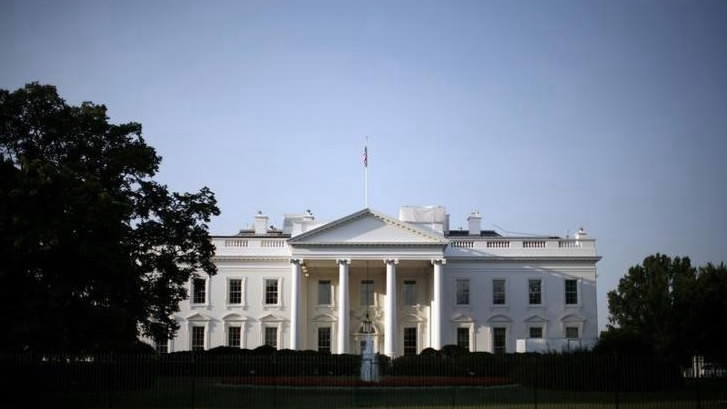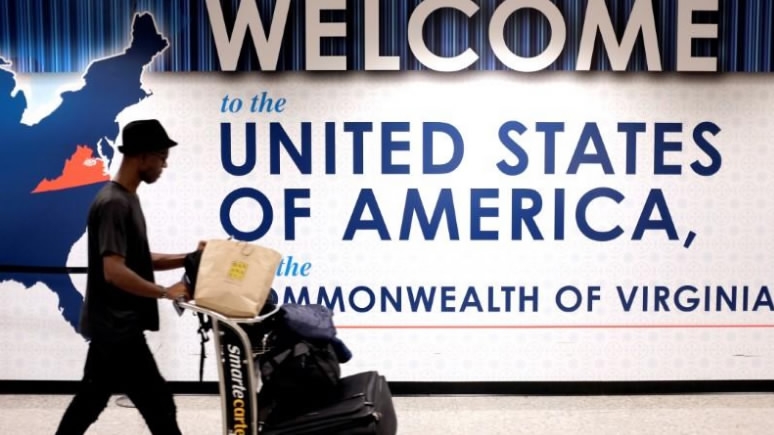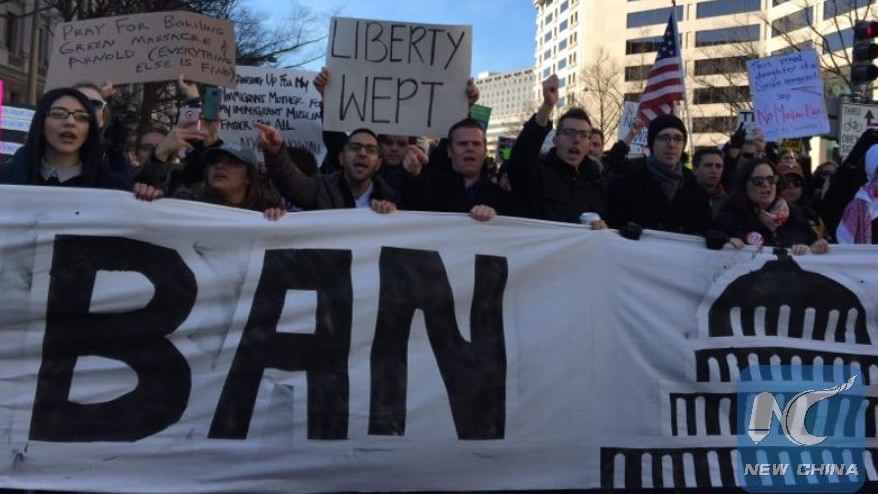
Politics
10:52, 21-Nov-2017
White House asks Supreme Court to allow full travel ban
CGTN

The White House asked the US Supreme Court on Monday to allow President Donald Trump’s latest travel ban to take full effect after an appeals court in California ruled last week that only parts of it could be enacted.
A three-judge panel of the San Francisco-based 9th US Circuit Court of Appeals partially granted a Trump administration request on November 13 to block at least temporarily a judge’s ruling that had put the new ban on hold.
It ruled the government could bar entry to people from six Muslim-majority countries with no connections to the United States.
Trump’s ban was announced on September 24 and replaced two previous versions that had been impeded by federal courts.

The transit area after clearing immigration and customs on arrival at Dulles International Airport in Dulles, Virginia, US, September 24, 2017. /Reuters Photo
The transit area after clearing immigration and customs on arrival at Dulles International Airport in Dulles, Virginia, US, September 24, 2017. /Reuters Photo
The administration’s appeal to the top US court argued that the latest travel ban differed from previous orders “both in process and in substance” and that the differences showed it “is based on national-security and foreign-affairs objectives, not religious animus.”
It also argued that even if the 9th Circuit ruled to uphold the partial ban, the Supreme Court was likely to overturn the decision as it had “the last time courts barred the President from enforcing entry restrictions on certain foreign nationals in the interest of national security.”
Last week’s appeals court ruling meant the ban would only apply to people from Iran, Libya, Syria, Yemen, Somalia and Chad who did not have connections to the United States.
Those connections are defined as family relationships and “formal, documented” relationships with US-based entities such as universities and resettlement agencies.
Those with family relationships that would allow entry include grandparents, grandchildren, brothers-in-law, sisters-in-law, aunts, uncles, nieces, nephews and cousins of people in the United States.

Demonstrators rally in front of the White House, Washingtong against Trump's executive order barring US entry to all refugees and seven Mideast and North African countries citizens, Feb. 4. /Xinhua Photo
Demonstrators rally in front of the White House, Washingtong against Trump's executive order barring US entry to all refugees and seven Mideast and North African countries citizens, Feb. 4. /Xinhua Photo
The state of Hawaii, which sued to block the restrictions, argued that federal immigration law did not give Trump the authority to impose them on six of those countries.
The lawsuit did not challenge restrictions towards people from the two other countries listed in Trump’s ban; the DPRK and Venezuela.
Trump issued his first travel ban targeting several Muslim-majority countries in January, just a week after he took office, and then issued a revised one after the first was blocked by the courts.
The second ban expired in September after a long court fight and was replaced with another revised version.
Trump has said the travel ban is needed to protect the United States from attacks by Islamist militants.
As a candidate, Trump promised “a total and complete shutdown of Muslims entering the United States.”
8792km
Source(s): Reuters

SITEMAP
Copyright © 2018 CGTN. Beijing ICP prepared NO.16065310-3
Copyright © 2018 CGTN. Beijing ICP prepared NO.16065310-3